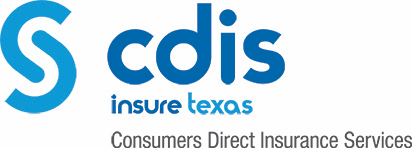If you rely on various medications to maintain your health, it’s good to know that you can secure benefits through a Medicare Prescription Drug Plan, or Part D. But different plans cover different drugs, and it’s sometimes challenging to find a plan that covers the specific medications you use. Here’s some guidance on how to find out if your drugs are covered under Part D, and what to do if they aren’t covered.
First Check the Formulary, or List of Covered Drugs For Any Part D Plan You Are Interested In
Each Medicare drug plan has its own list of covered drugs, called a formulary. In most cases, covered drugs are classified into tiers, with drugs in the lowest tier costing less than those in higher tiers. If you are interested in joining a Part D plan, be sure to review the formulary to ensure your drugs are on the list. Remember, each plan is different, with different formularies. If you don’t see your drugs listed, check another plan.
Formularies often change yearly, meaning your drugs may no longer be available next year, even if they are covered this year. Sometimes, covered drugs change tiers, or move between classifications. Even if you are happy with your Part D coverage, it is essential that you review your plan’s Annual Notice of Change, along with the formulary for the upcoming year to avoid being surprised at the pharmacy.
Some Drugs are Covered By Original Medicare, Part A and Part B
In some cases, Original Medicare covers drugs that Part D does not. For instance, vaccines, cancer drugs, and certain injectable prescription drugs are covered under Medicare Part B if you receive them in an outpatient setting, like your doctor’s office.
Some Drugs are Not Covered By Medicare Part A, Part B, or Part D
It’s important to know which medicines may be covered under your Medicare health plan, and which are not. Neither Original Medicare nor Medicare Part D provides benefits for over-the-counter drugs. For instance, cough and cold medicine, vitamins, medication for hair growth, and medication designed to treat sexual dysfunction are not covered.
What to Do If Your Drugs are Not Covered Under Medicare
In the event you realize your drugs are not covered under a current Part D plan or Original Medicare, there are a few things you can do.
Ask your doctor if there are substitutes available. In many cases, formularies do not cover brand-name drugs but do offer coverage for generic, or low-cost alternatives. You can also ask your doctor if there is another drug that may work the same as one that is not available through your Part D plan.
Request a formulary exception. Medicare is open to listening to your doctor if he or she believes that a specific drug is the only medication that will help your condition. A formulary exception may be granted if your doctor and Medicare agree that the drug is medically necessary for your health. You also have the right to file an appeal should Medicare deny your request for a formulary exception.
Switch to a new Part D plan. Each Part D plan is different, and it is possible that your drugs are covered under a different plan’s formulary. If your current plan no longer covers your medication, and you find a new plan that does, you can switch during Annual Enrollment Period (October 15 – December 7) each year.
References:
https://www.medicare.gov/part-d/coverage/part-d-coverage.html
https://www.medicare.gov/part-d/coverage/rules/drug-plan-coverage-rules.html
MUC67-2017-BCBS


